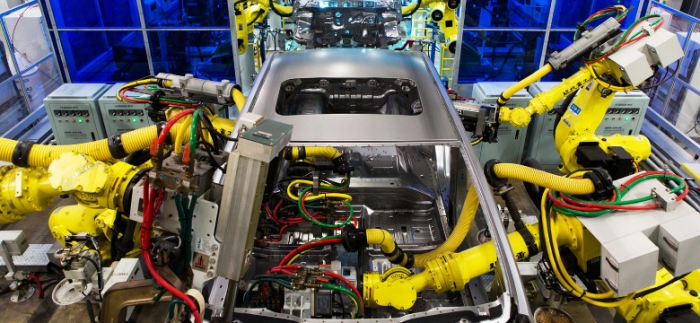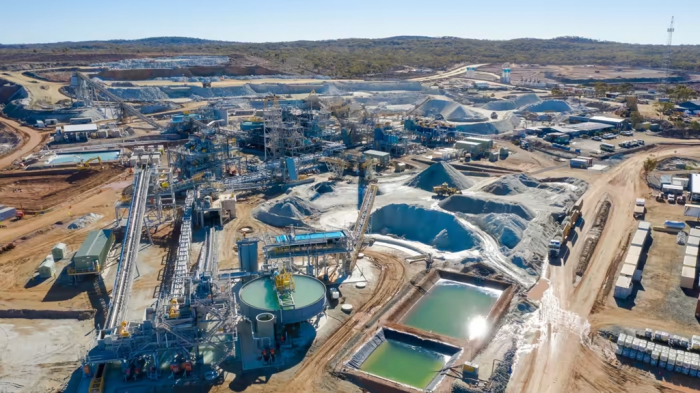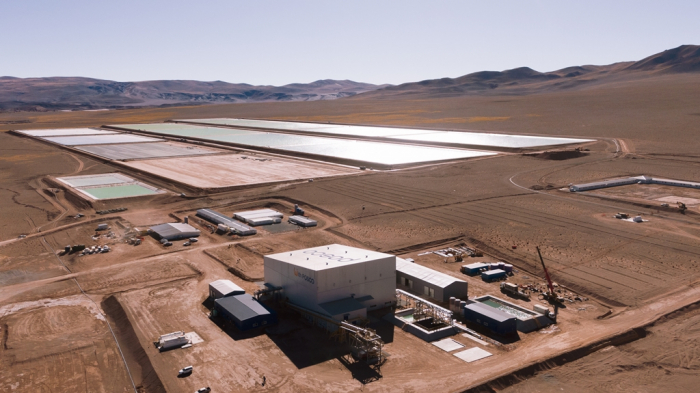Automobiles
Hyundai Motor, battery firms strive to limit China lockdown disruptions
The auto industry’s supply chain management paradigm is shifting toward directly securing parts and raw materials
By May 02, 2022 (Gmt+09:00)
3
Min read
Most Read
LG Chem to sell water filter business to Glenwood PE for $692 million


Kyobo Life poised to buy Japan’s SBI Group-owned savings bank


KT&G eyes overseas M&A after rejecting activist fund's offer


StockX in merger talks with Naver’s online reseller Kream


Mirae Asset to be named Korea Post’s core real estate fund operator



The growing fears of a Beijing lockdown are prompting South Korea’s top automaker Hyundai Motor Co. and battery makers, already suffering from supply chain disruptions in China, to diversify parts procurement channels away from Chinese suppliers.
Korean companies are also moving to secure metals such as lithium directly from mining companies and manufacturers of raw materials to slash rising costs.
“It looks like the time has come for automakers to even play as general trading companies to secure raw materials for use in electric vehicles,” said an auto industry official.
The looming possibility of a lockdown in Beijing following similar previous moves in Shanghai and Shenzhen to contain the resurgence of the COVID-19 pandemic is changing the auto-related industry’s supply chain management (SCM) paradigm to directly secure auto parts and raw materials, analysts said.
As part of such moves, Hyundai Motor recently launched a task force composed of its procurement experts who previously belonged to different divisions to enhance the company’s bargaining power.

“We have so far secured raw materials through our partners. But we plan to change our procurement method in a way that we procure them on our own,” said Seo Gang-hyun, executive vice president in charge of Hyundai's finance and accounting division.
The company said it has diversified its procurement source of wiring harness, an auto component, from a company in Shandong, China to suppliers in Vietnam, Cambodia and the Philippines. As a result, Hyundai’s dependence on China of the component has declined to 60% from a pre-pandemic level of 95%.
Hyundai said it has also started to receive airbag control units from a Canadian company after cutting ties with a Chinese company based in Wuxi, a city near Shanghai.
BATTERY MAKERS STRIVING TO ESCAPE FROM CHINA’S GRIP
About 2,500 South Korean companies currently have businesses in Shanghai, according to Korea Trade-Investment Promotion Agency (KOTRA).
The trade agency said it expects Korean companies’ production in Shanghai and other Chinese cities to remain disrupted for an extended period, raising concerns that China’s aggressive policy against the pandemic will hurt their sales.

Korea’s three battery players – LG Energy Solution Ltd., SK On Co. and Samsung SDI Co. – and other battery materials companies are also making their efforts to diversify their procurement of minerals away from China.
Korean battery companies, already under pressure as the higher dollar-won exchange rate inflates their materials procurement costs, are bypassing China’s intermediary suppliers to directly secure lithium and other minerals from mining firms.
While China is not the primary producer of battery materials such as cobalt, nickel and lithium, it is the primary processor of them.
Industry watchers said soaring prices of metals for electric vehicle batteries are particularly worrisome for Korea, home to LG Energy, the world’s second-largest battery maker, and its local peers, which rely heavily on Chinese suppliers.
Global automakers are also moving to strengthen their supply chain management channels to overcome a recent tide of resource nationalism, which is boosting raw material costs.
General Motors Co. in late February named Shilpan Amin, an executive of GM’s global purchasing and supply chain division, as president of GM International, handling the automaker’s global operations outside of North America and China. Amin’s predecessor, Steve Kiefer, was also previously in charge of GM’s purchasing and supply chain business.
Write to Han-Shin Park at phs@hankyung.com
In-Soo Nam edited this article.
More to Read
-
 BatteriesChina’s tighter grip on minerals boosts costs for Korean battery makers
BatteriesChina’s tighter grip on minerals boosts costs for Korean battery makersApr 12, 2022 (Gmt+09:00)
4 Min read -
 Korean stock marketChina's lockdown: Double effect to Korean tech stocks
Korean stock marketChina's lockdown: Double effect to Korean tech stocksMar 17, 2022 (Gmt+09:00)
3 Min read -
 War in UkraineKorea jittery over oil, gas, commodity weaponization
War in UkraineKorea jittery over oil, gas, commodity weaponizationMar 13, 2022 (Gmt+09:00)
4 Min read -
 Battery materialsLG Chem, China’s Huayou Cobalt to build battery metal JV in Korea
Battery materialsLG Chem, China’s Huayou Cobalt to build battery metal JV in KoreaJan 05, 2022 (Gmt+09:00)
3 Min read -
 BatteriesChina’s tighter grip on supply chain hurts Korean battery makers
BatteriesChina’s tighter grip on supply chain hurts Korean battery makersDec 27, 2021 (Gmt+09:00)
4 Min read
Comment 0
LOG IN


